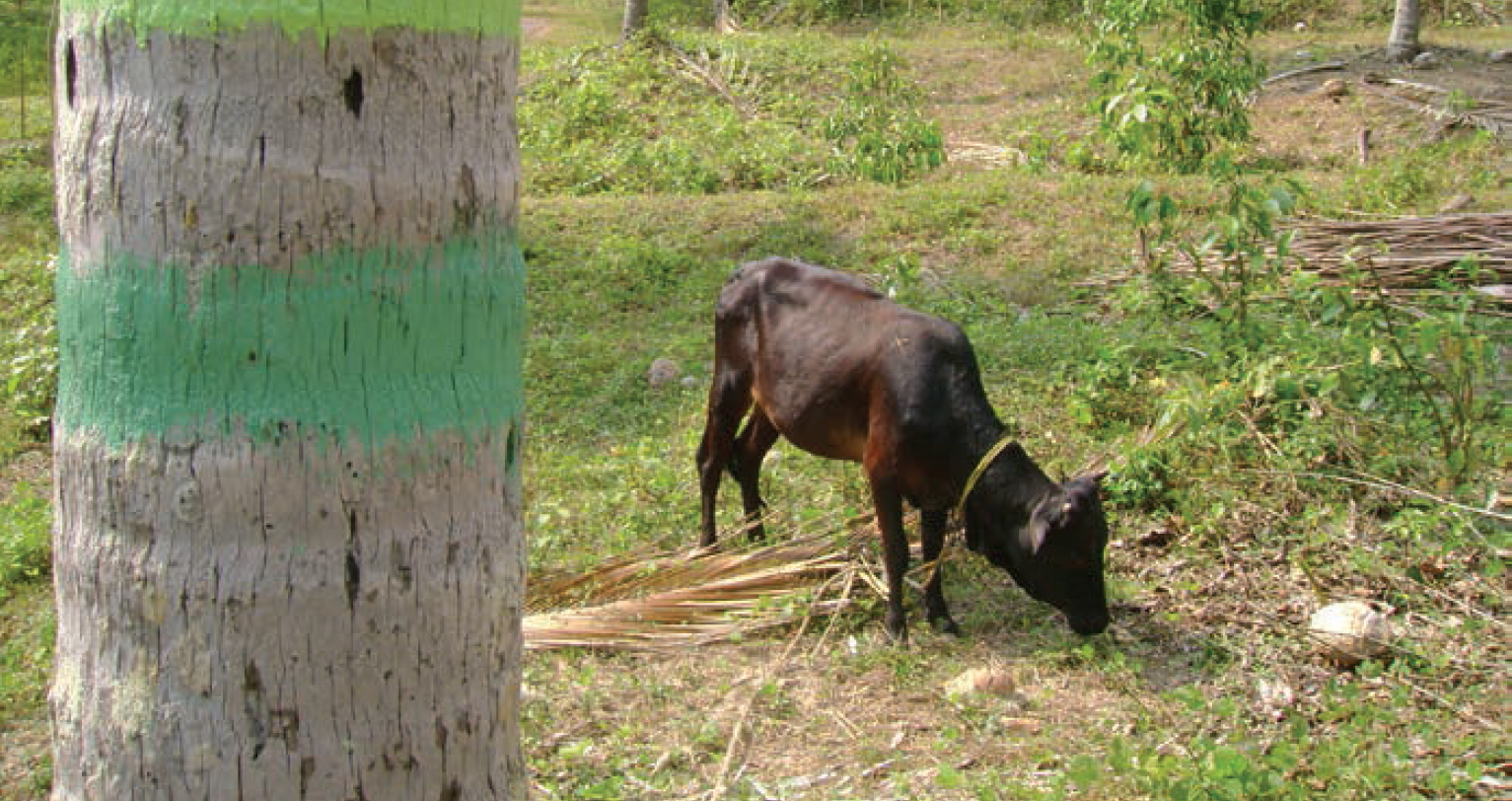New case study: Significant improvements in productivity for Sri Lankan cattle/coconut farming
In southern Sri Lanka, smallholder farmers grazing their cattle on local coconut plantations have achieved significant improvements in both livestock and coconut productivity by supplementing with Gliricidia sepium and low-cost concentrates, and through strategic manure management.
For three years, the farmers supplemented their cattle’s natural herbage fodder with a high-protein tree fodder crop (G. sepium), a cheap protein source rich in vitamins and minerals; and a low-cost concentrate (comprising urea, rice bran, molasses and minerals). They also restricted the lengths of tethered ropes for grazing, incorporating more dung and urine to the manure circle of the coconut palm; and deposited fallen fronds, coconut husks etc inside the manure circle to promote nutrient recycling.
The impact on animal productivity has been significant, with cows nearly 10% heavier at calving, the first calving age dropping by around 17%, the average birth weight of calves increasing by 13%, and milk yield increasing by up to 47%. Nut and copra yields almost doubled.
These outcomes indicate real potential for improving long-term food security and other environmental gains in the region.

